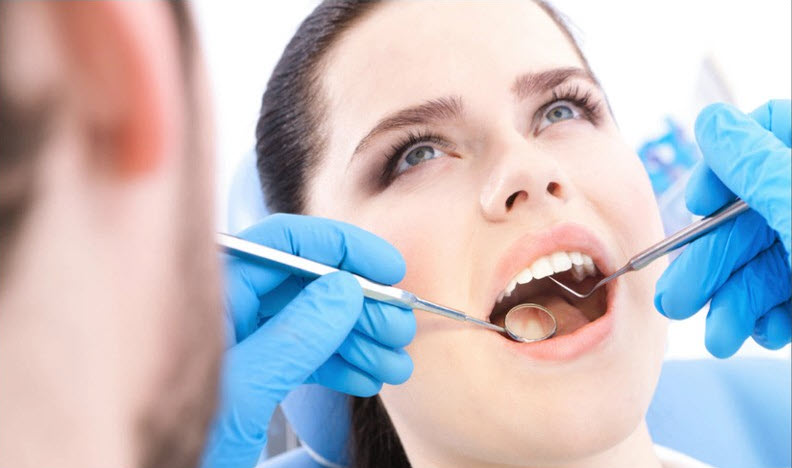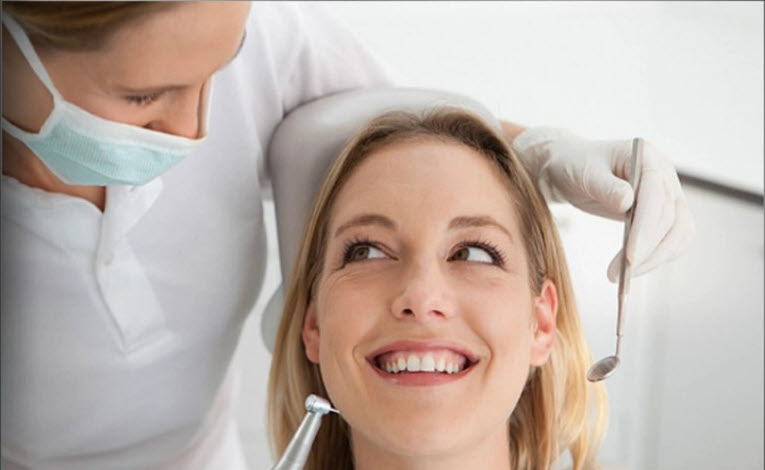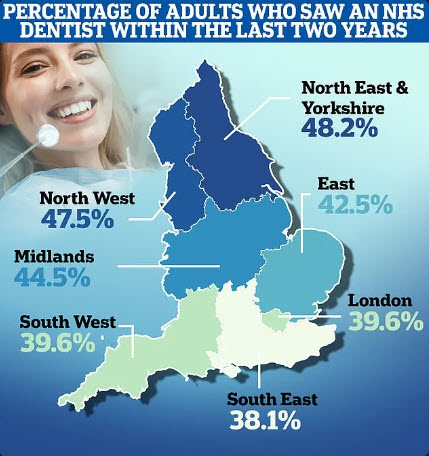If you have been following the news recently, or have tried to get a national health dentist, you will know that the UK dentistry industry is in turmoil and chaos. As a result, queues form outside dentistry practices all around the country, with people trying to get national health appointments.
Table of Contents

Because it's so hard to get an appointment with an NHS dentist, some people are:
- Driving for hours: They travel far distances to find a dentist who can see them.
- Taking extreme measures: They are pulling their own teeth, sometimes without any numbing medicine, which can be very painful.
- Making their own replacements: They are trying to fix their missing teeth with homemade solutions that might not be safe or effective.
- Limiting their food choices: They are only eating soft foods like soup because they can't chew properly due to dental problems.
I think you'll agree that more than ever, we need to look after our teeth so that we can minimise unnecessary trips to the dentist- that's if you can get an appointment in the first place!
On a personal note, my granddaughters aged 10 and 8 cannot get an appointment with a dentist, either via the National Health or privately.
Here is a comprehensive guide to how you can maintain good dental health. I am not teaching you to suck eggs (but you will need to learn that art if your teeth fall out), but there may be some things that you did not know about cleaning and looking after your gnashers.
Brushing your Teeth - The Art of Good Dentistry
Here's how to brush your teeth like a superhero for your smile in just a few easy steps:
- Gear Up: Grab your toothbrush with soft bristles and a pea-sized amount of toothpaste.
- Tilt and Target: Hold the brush at an angle, like a number 7, with the bristles pointing towards your gumline.
- Brush Gently: Don't scrub! Move the brush back and forth in short strokes, about the width of a tooth at a time.
- Clean Every Hero Zone: Brush the outside, inside, and chewing surface of each tooth. Don't forget the backs of your front teeth – tilt the brush straight up or down to reach them.
- Don't Neglect Your Tongue: Brushing your tongue gently helps freshen your breath by removing bacteria.
- Be a Brushing Timekeeper: Aim for 2 minutes of brushing. You can hum your favorite song twice to keep track!
- Rinse and Smile! Rinse with water to remove toothpaste and admire your sparkling clean teeth!
Here are some bonus tips:
- Be gentle: Brushing too hard can irritate your gums.
- Brush twice a day: Once in the morning and before bed is ideal.
- Replace your brush: Get a new toothbrush every 3-4 months, or sooner if the bristles look frayed.
By following these steps, you'll be well on your way to a healthy and happy smile!
Manual vs. Electric Toothbrush: A Brushing Showdown
Manual Toothbrush:
- Pros:
- Lower cost: Generally cheaper to purchase and maintain.
- Simple to use: No charging or complicated features.
- Travel-friendly: Compact and doesn't require electricity.
- Cons:
- Cleaning effectiveness: Requires proper technique and effort for a thorough clean, which can be challenging for some.
- Hard-to-reach areas: May struggle to clean effectively behind teeth and along the gum line.
- Requires more time: Brushing for the recommended 2 minutes can feel tiring.
Electric Toothbrush:
- Pros:
- More effective cleaning: Studies show they remove more plaque and reduce gum disease compared to manual brushing (with proper technique).
- Easier to use: Requires less brushing effort and can help ensure proper coverage, especially for those with dexterity issues.
- Timers and features: Many have built-in timers and features like pressure sensors to guide brushing and prevent over-brushing.
- Cons:
- Higher cost: Requires an initial investment and replacement brush heads.
- Bulkier and requires charging: Less portable and needs a power source.
So, which one is best?
Both manual and electric toothbrushes can be effective for oral hygiene, but electric toothbrushes generally offer several advantages in terms of cleaning effectiveness and ease of use. However, the best choice for you depends on your individual needs and preferences.
Here's a quick guide:
- Choose a manual brush if: You're on a budget, prefer a simple routine, or travel frequently.
- Consider an electric brush if: You struggle with proper brushing technique, have dexterity issues, or want a more thorough clean.
Ultimately, the most important factor is to brush your teeth twice a day for 2 minutes, using a soft-bristled brush and fluoride toothpaste. Regardless of your choice, proper brushing habits are essential for maintaining good oral health.
To Floss or Not to Floss - That is the Question
Brushing your teeth is great, but it can't reach everywhere! Flossing is like having a tiny superpower for your smile. It helps clean the spaces between your teeth, where food particles and icky bacteria love to hide. These can cause problems like cavities and gum disease, which can make your mouth feel sore and unhappy. Flossing regularly, say once a day, helps remove these troublemakers before they cause any issues, keeping your teeth and gums healthy and happy!
Here's how to floss your teeth like a pro:
- Grab some floss: You can use about 18-24 inches of floss, which is roughly the length of your forearm.
- Make the floss hug your fingers: Wind most of the floss around the middle fingers of each hand, leaving a 1-2 inch section between them. Pinch that section with your thumbs and index fingers for control.
- Slide between teeth: Gently guide the floss between two teeth using a zig-zag motion. Don't force it! If it won't budge easily, try a different technique.
- Become one with the tooth: Once the floss is between your teeth, curve it into a C-shape around the side of one tooth. This hugs the tooth and lets you clean its surface.
- Gently scrape up and down: Slide the floss up and down along the side of the tooth, reaching under the gum line. Imagine you're removing plaque like a tiny saw. Be careful not to yank or snap the floss, but use a gentle back-and-forth motion.
- Repeat and advance: Unwind clean floss as you move to the next tooth, and repeat steps 3-5 for all your teeth. Don't forget to floss the backs of your back teeth too!
- Rinse and celebrate: After you're done flossing, rinse your mouth with water to remove any dislodged food or plaque. You've just given your smile a super clean!
Here are some bonus tips:
- Be gentle: Your gums are delicate, so don't force the floss or scrub too hard.
- Don't be scared of a little blood: If you see a little blood at first, it's probably because your gums are irritated from plaque buildup. Flossing regularly will help them heal and become less sensitive.
- Find a floss you like: There are different types of floss like waxed, unwaxed, or flavored. Experiment and see which feels most comfortable for you.
Remember, flossing takes practice! Don't get discouraged if it's awkward at first. With a little time, you'll be a flossing pro and your teeth will thank you for it!
Wash Your Mouth out...
Mouthwash can be a helpful addition to your oral care routine, but it's not a substitute for brushing and flossing. While it offers some benefits like freshening breath and reaching areas brushing might miss, it doesn't remove plaque as effectively. Additionally, some mouthwashes can contain alcohol, which can dry out your mouth and disrupt the natural balance of bacteria.
Therefore, mouthwash can be a good supplement to your brushing and flossing routine, but it's not a replacement. If you're considering using mouthwash, talk to your dentist or search online about choosing an alcohol-free option and ensure it complements your regular brushing and flossing habits.
The Fluoride Debate: Pros, Cons, and a Balanced View
Fluoride is a mineral commonly added to public water supplies in many parts of the world. It's a hot topic with strong arguments on both sides. Recently, the UK Government announced that they were increasing the levels of fluoride in drinking water, allegedly to combat the rising rates of dental problems, no doubt due to the fact people can't get an appointment! Even they acknowledge that dentistry, like many other services, are poor to average at best,
In my personal view - if the Government has sanctioned the increased use of fluoride in water, then I will continue to use filtered water. My reasoning is that if studies prove later on that fluoride is actually bad for your health (some have already stated that), it can't be removed.
Pros of Fluoride in Water:
- Reduces tooth decay: Extensive research shows that fluoride effectively strengthens tooth enamel and prevents cavities, especially in children. This can lead to significant savings on dental bills and improved overall oral health.
- Cost-effective: Adding fluoride to water is a relatively inexpensive way to reach a large population and improve public health.
- Safe at controlled levels: When added to water at recommended levels, fluoride is considered safe and beneficial by major health organizations like the World Health Organization and the Centers for Disease Control and Prevention (CDC).
Cons of Fluoride in Water:
- Potential for excessive intake: In areas with naturally high fluoride levels in water or where people use fluoridated toothpaste and mouthwash, there's a risk of exceeding the recommended intake. This can lead to dental fluorosis, which causes white spots on teeth, although it's typically not a health concern.
- Ethical concerns: Some people object to having a substance added to their water supply without their individual consent, even if it's intended for public health benefit.
- Limited benefits for some: Adults generally see less benefit from fluoride than children, and some studies suggest minimal additional benefit in areas with widespread fluoridated toothpaste use.
To Filter or Not to Filter?
There's no one-size-fits-all answer. Here are some things to consider:
- Your local water fluoridation levels: Check with your local water authority to see if they add fluoride and at what level.
- Your personal dental hygiene practices: If you use fluoridated toothpaste and mouthwash regularly, your additional fluoride intake from water may be less critical.
- Your individual health concerns: If you have concerns about potential health risks associated with fluoride, speak to your doctor or dentist.
Ultimately, filtering out fluoride is a personal choice. It's important to weigh the potential benefits, consider your own circumstances, and make an informed decision based on your needs and preferences.
Teeth Whitening in Dentistry
There are so many adverts etc. for teeth Whitening products on social media sites. Most of these products that you find on Facebook for example simply do not work - but of course, you will only find that out once you have purchased it! The only way that you are going to get satisfactory teeth whitening is through a dentist's recommendation. So save your money on these products and false claims. Instead, consult a recognised organisation such as BUPA that offers teeth whitening, whether it is at one of their clinics or by purchasing their home teeth whitening kits.
The only other method that has received almost 30,000 good reviews on Amazon is Dr Dent's Teeth Whitening strips which contain a gel, and you put it on your teeth for 30 - 60 minutes. This is much cheaper than the Bupa home treatment, and as far as I am aware, is just as effective - and you can get it the next day.

Summary
I hope this has helped give you an insight into dental hygiene and dentistry in the UK. This situation is simply not going to improve, no matter how much money is thrown at it, so it is up to us as individuals to look after our teeth as best we can.
Your comments are welcomed, and feel free to contact us regarding anything in this article about dentistry.





















